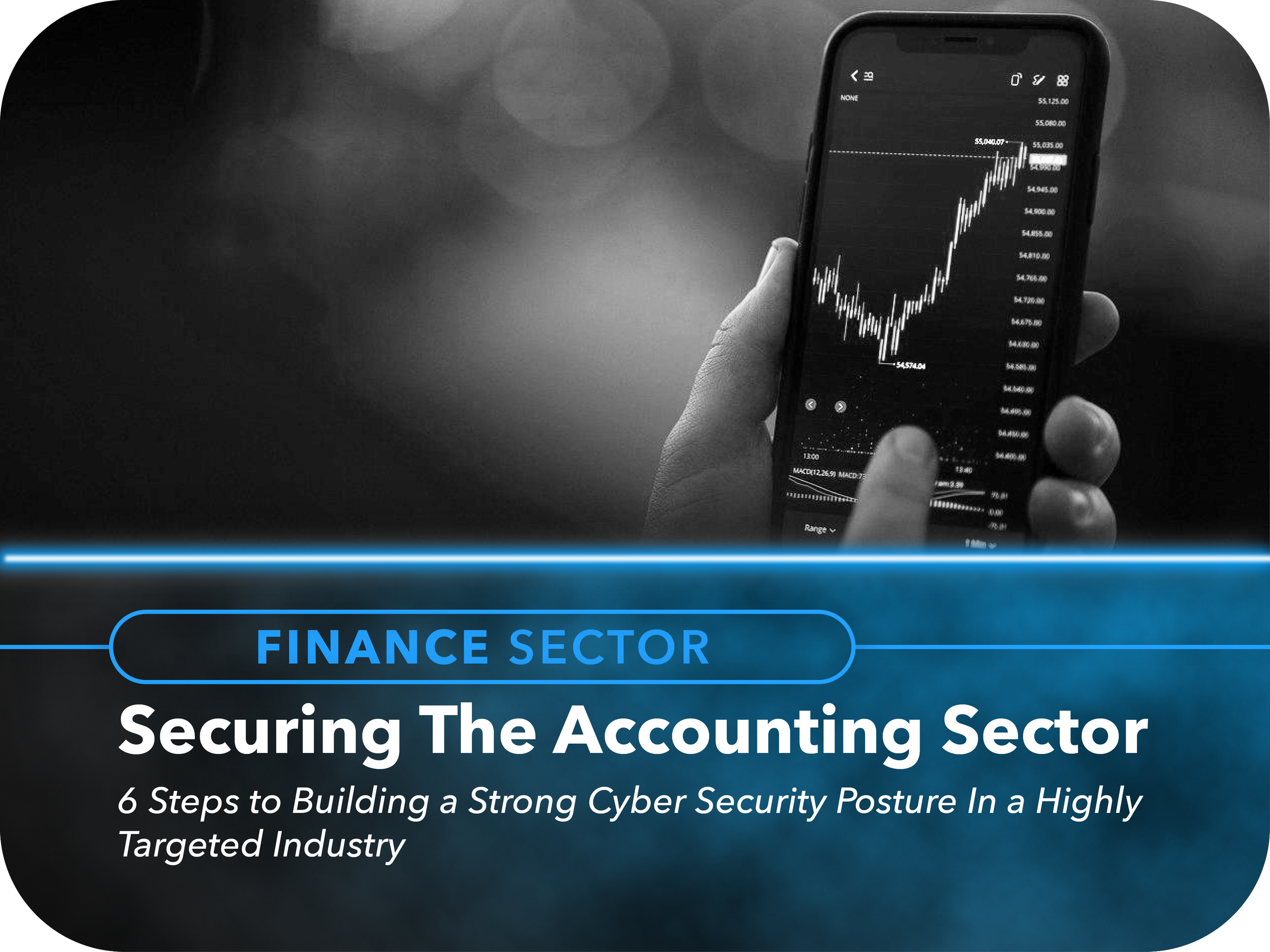
Cyber Security for
Accountants
From taxes to bookkeeping and inheritance to shares. It should go without saying that accountancy services are home to sensitive financial data from individuals and organisations. Cyber security plays a crucial role in safeguarding this data for accounting firms.

“Cyber threats are the most cited long-term operational risk for executives. 31% selected it among their two most concerning operational risk issues for the next decade.”
- Accounting Today
Accountancy challenges in the face of Cyber Threats
Protecting Valuable Data
Financial data, personal data, corporate data – all this is a prime target for cyber criminals. Safeguarding this data is essential to the successful provision of services by accountants and accounting firms. What processes do you have in place to protect your clients’ data?
Managing Trusted Reputation
The nature of a cyber breach means that it must be reported to the ICO and to those whose data has been affected. Depending on the cause of the breach and how it’s handled, this could result in additional financial loss, on top of the initial data loss. These combine to create an often irreparable dent in a firm’s reputation.
Employee Risk Management
Human beings are not infallible. Employees and colleagues will always be your last line of defence – it’s all too easy to send an email to the wrong person, click on a link in a rush, or accept an attachment from a senior colleague. Are you confident in your employees’ knowledge of your security processes or their ability to spot a sophisticated phishing email?
Common Attack Types in Accountancy
Phishing
Often in the form of an email (though can be a text, voice call, or QR code), phishing is an impersonation of a trusted person or provider in an attempt to gain specific sensitive information.
An email to an accountancy firm appearing to be a service provider (e.g. Xero) and asking to click a link and submit login details.
Ransomware
A type of software that steals data and prevents user access to the network, with the aim of demanding money for the safe return of the data.
An infection of ransomware in an accountancy firm steals the financial information of 50% of clients. The ransomware gang responsible demands £500,000 for return of the client data. An additional ICO fine could be incurred.
Business Email Compromise
Impersonation of trusted partners, clients, or, usually, senior executives/directors, with the aim of tricking employees into sharing sensitive information or perhaps transferring funds.
An email from the firm’s MD instructs another colleague to urgently transfer client funds ahead of a meeting.
Supply Chain Attacks
Significant providers in an industry (e.g. Quickbooks, Xero, Sage) can be targeted by cyber criminals to gain access to sensitive information. Attacks could be a stepping stone to subsequent attempts against users of the service, or downtime of the provider could directly disrupt operations.
A HR provider of an accountancy firm is attacked and the data of users is stolen and offered for sale on the dark web – potentially leading to direct attacks in the future.

Protecting Accountancy Firms from Cyber Threats
Get in Touch
Learn more about Cyber Security in Accountancy




